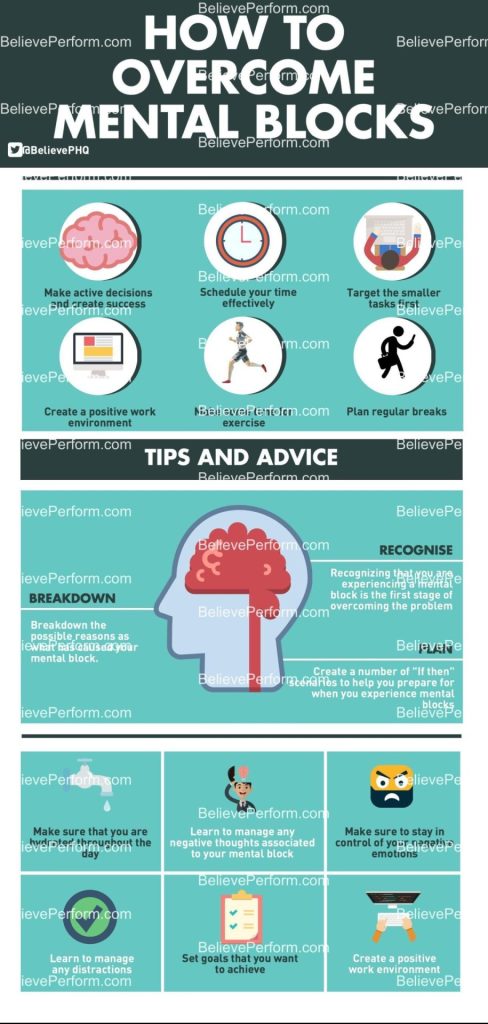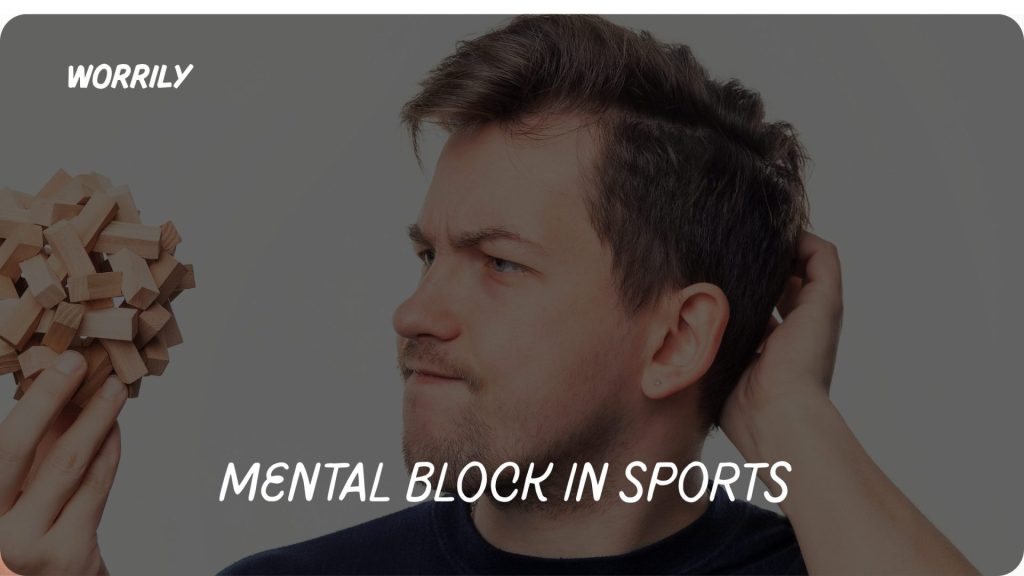A mental block in sports can be one of the most frustrating challenges an athlete faces. It can happen suddenly, turning a once-confident player into someone who hesitates, second-guesses, and struggles to perform even the most routine skills.
Whether it’s a gymnast freezing mid-air, a basketball player unable to take a shot, or a runner stuck at the starting line, this psychological barrier can feel impossible to break through.
A mental blockage doesn’t just affect performance it can shake an athlete’s self-belief, increase anxiety, and create a cycle of fear and doubt. However, understanding why mental blocks happen and learning how to overcome them can help athletes regain control and confidence.
How to Get Out of a Mental Block in Sports?
Overcoming a mental freeze is not about simply pushing harder. Many athletes try to force themselves through a mental block, but this often leads to frustration and even deeper anxiety.
The first step to breaking free is acknowledging the block rather than denying it. Instead of seeing it as a failure, recognizing that this is a common experience among athletes can ease the pressure.
Next, shifting focus away from the fear of failure and back onto the present moment is crucial.
Visualization is a powerful tool mentally rehearsing a successful performance can help rewire the brain and build confidence.
Relaxation techniques, such as deep breathing and meditation, can also help manage the physical symptoms of anxiety that often accompany a mental blokade.
Sometimes, mental blocks are reinforced by negative thought patterns, so replacing self-doubt with positive self-talk can be an effective strategy.
If these methods do not bring relief, professional guidance from a sports psychologist or an online therapist can offer personalized strategies to help overcome mental barriers.
How Many Athletes Struggle with Mental Blocks?

Credit : khan Academy
Mental blocks are far more common than most people realize. Countless elite and amateur athletes experience moments of mental blockage, and it can happen in any sport.
Gymnasts, for instance, frequently struggle with the “twisties,” a dangerous loss of spatial awareness during mid air moves.
Golfers often deal with the “yips,” where they suddenly lose control over their putting stroke. Basketball players may find themselves unable to take free throws, and sprinters may hesitate at the starting line due to performance anxiety.
The fact that so many athletes deal with mental blocks proves that it is not a sign of weakness but rather a psychological challenge that requires mental training just as much as physical practice.
Even the best athletes in the world have moments of hesitation, proving that the mind plays just as crucial a role in performance as the body.
How Do You Fix Mental Blocks?

Credit : Members believe Perform
Fixing a mental blokade takes patience, self-awareness, and a structured approach. One of the most effective ways to overcome mental blocks is to reframe how failure is perceived.
Many athletes develop mental blocks due to a fear of failing, but shifting the mindset to see setbacks as opportunities for growth rather than threats can reduce anxiety.
Self talk also plays a critical role. Negative dialogue onlycauses a mental block, whereas positive affirmations can rebuild confidence.
Setting small, achievable goals can also help break the cycle of a mental block. Instead of trying to force a return to peak performance immediately, focusing on small, incremental improvements can rebuild trust in one’s abilities.
Working with a mental coach or therapist can also be highly effective. Many athletes benefit from personalized mental training programs that help them regain confidence and develop strategies to stay mentally strong under pressure.
READ ALSO: Why College Athletes Should Not Be Paid-Key Reasons Explained
READ ALSO : Why are athletes mental health so neglected?
Why Does Mental Block Happen?
A mental block in sports can happen from various psychological and physiological factors. One of the most common causes is the fear of failure.
Athletes who put extreme pressure on themselves to perform perfectly often experience mental blocks because their fear overrides their ability to stay in the moment.
Performance anxiety is another major factor when the stakes feel high, the body and mind can go into a state of mental freeze, making it difficult to react naturally.
Traumatic experiences, such as a past injury or a failed performance, can also create subconscious resistance, making an athlete hesitant to perform the same action again. Lack of confidence is another contributing factor, as athletes who doubt their abilities are more likely to overthink and hesitate instead of trusting their training.
Recognizing these underlying causes is essential to developing a plan to overcome a mental block.
READ ALSO : BREATHING NECKLACE FOR ANXIETY
Are Sports 90% Mental?
There is a well-known saying in the sports world: “Sports are 90% mental and 10% physical.” While the exact percentage may be up for debate, there is no doubt that the mental aspect of sports plays a crucial role in performance.
Many athletes spend hours refining their physical skills but neglect their mental training, leading to struggles with focus, confidence, and resilience.
The ability to stay composed under pressure, bounce back from mistakes, and maintain a positive mindset often separates good athletes from great ones.
Top-performing athletes recognize the importance of training the mind as much as the body. Visualization, goal-setting, and mental toughness exercises are all critical components of a well-rounded training program.
Mental strength is often what determines whether an athlete succeeds or falls short in high-pressure situations.
Having Confidence in Your Skills
Confidence is one of the most powerful tools in overcoming a mental blockage. Athletes who trust their skills and training are less likely to experience hesitation and fear.
Building confidence requires consistent effort, but it starts with recognizing progress, no matter how small.
Celebrating small victories, such as completing a specific drill successfully or improving consistency, can help reinforce a sense of competence.
Trusting in training is another key element. Many athletes experience mental blocks because they focus too much on the outcome rather than the process.
By shifting attention to the work they’ve put in rather than worrying about potential mistakes, athletes can develop a stronger sense of belief in themselves.
Staying present in the moment, rather than dwelling on past failures or future anxieties, can also help prevent mental blocks from taking hold.
Overcoming Mental Blocks in Competition
Mental blocks tend to intensify during competition when pressure is at its highest. Developing a strong pre-game routine can help ease nerves and create a sense of familiarity that makes it easier to stay focused.
Mindfulness techniques, such as controlled breathing and grounding exercises, can also help athletes stay calm and prevent mental freeze from setting in.
Accepting imperfection is another important aspect of overcoming mental blocks in competition.
Many athletes place unrealistic expectations on themselves, which only increases anxiety. By embracing mistakes as part of the learning process, athletes can free themselves from the fear that contributes to mental blocks.
Confident Athlete:
The most successful athletes understand that mental blocks are just temporary obstacles, not permanent limitations. By strengthening their mental game, they develop resilience, confidence, and the ability to perform under pressure.
Overcoming mental barriers takes time and effort, but with the right mindset and strategies, athletes can regain control and unlock their full potential.
Struggling with a Mental Block? Get the Support You Need
If mental blocks are preventing you from reaching your full potential, seeking professional guidance can make a world of difference.
Online therapy offers a convenient and effective way to address performance anxiety, boost confidence, and develop mental toughness.
Speaking with a qualified therapist can provide you with the tools you need to break free from hesitation and reclaim your athletic performance.
